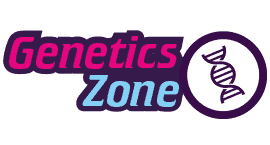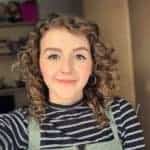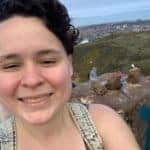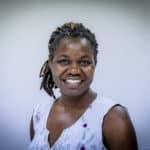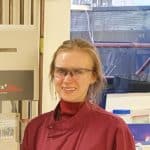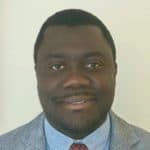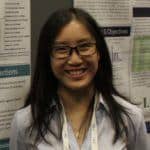Profile
Anna Wilbrey-Clark
-
About Me:
I live with my husband and 2 children (ages 7 and 4) in Cambridge. I used to enjoy travelling, reading and watching tv – until I had children, who now take up all my ‘spare’ time!
-
My pronouns are:
She/her
-
My Work:
I’m a wet lab scientist (I work at the bench with the cells / chemicals). I work as part of a large international collaboration called the ‘Human Cell Atlas’ studying genes and cells.
-
Read more
The Human Cell Atlas aims to map all of the cell types in the human body – we want to understand what genes each cell type expresses and where in your body it is. Think of it like trying to create a Google Map of your body, where the world is you, the countries are your organs and you can zoom in right down to see the individual houses, or cells.
-
My Typical Day:
There is no such thing as a typical day! Life in our lab changes constantly and you have to be prepared for anything. 😉
-
Read more
Some weeks I am working in the lab – these days I mainly work with very thin slices of tissue, thinner than a human hair. I stain these so I can see what RNAs they contain (to understand what genes the cells are expressing). I also work with human tissues, which I break down to individual cells so I can understand what genes they are expressing. So far, my work has been on healthy human tissues, but our lab is now starting to work with diseased samples, to try and understand what goes wrong in disease and how we could make it better.
Other times I am working at my desk writing papers, or presenting my work to others – scientists and students at school. I believe it’s important to communicate what we do.
-
What I'd do with the prize money:
A few years ago, we ran a competition to get year 7-9 students to design a card game based on our project, Human Cell Atlas, which aims to map cell types in the human body (the project was called ‘How to build a human’, the original website is still here, currently: HCA: How to build a Human Card Game Challenge : Little Inventors). I don’t have the money to run it again, and the website will go down at some point, but we still have all the resources. I’d like to get those resources put up on a more permanent website and encourage schools to run the competition themselves – perhaps with £500 we could arrange a prize, or run a rolling competition with small ‘prizes’ a couple of times a year. Suggestions on how to get students / schools involved and the best format to encourage engagement welcomed please!
-
Education:
I went to comprehensive school in Stafford, West Midlands (Blessed William Howard), where I studied 4 A-levels (Biology, Chemistry, English Language, Maths).
I then studied for an undergraduate Masters in Biochemistry at the University of Bath (4 years), which was a fantastic degree as it involved 2 6-month work placements. For my first placement I studied at the Wellcome Sanger Institute in Cambridge, and was lucky enough to be there as they completed the first draft of the human genome sequence. My second placement was in the USA, in Rochester (upstate New York), working on an eye disease called Batten’s disease.
Following University I did a 3-year PhD at the Babraham Institute in Cambridge, on a mouse model of slow neuronal degeneration.
On completing my studies I spent 7.5 years working in research and development at Pfizer (pharmaceutical company), before moving to my current post at the Wellcome Sanger Institute, where I focus on the Human Cell Atlas project. This project is a global initiative with over 3000 members, aiming to map all of the cell types in the human body. We do this by studying gene expression (RNA).
-
Qualifications:
9 GCSEs inc double science.
4 A-levels: Biology, Chemistry, Maths and English Language. (At the time of choosing A-levels, I wasn’t sure if I wanted to go into science or become an english teacher. I always hated maths, but it seemed like a good subject to have a qualification in. A colleague once told me people who go into biology tend to hate maths. In my experience, it’s true – though I’m sure there are exceptions out there!
Undergraduate Master of Biochemistry, University of Bath. Best degree ever as it included 2 6-month work placements – one in the UK, one in the USA. Work experience is a must when applying for jobs post-degree.
PhD in Molecular Biology (3 years) – I actually studied at the Babraham Institute near Cambridge; though my degree was awarded by Cambridge University.
-
Work History:
I worked on a check-out in Marks and Spencer for a while when younger.
My first ‘job’ was my PhD degree – this isn’t really like studying, you are working as a scientist to answer questions / solve problems, then you have to write a book about what you did at the end and be cross-examined for a couple of hours to be awarded the degree. You get paid to do a PhD usually, and it’s tax-free.
Following my PhD I got a job at the pharmaceutical company Pfizer, working in research and development. I worked on cell therapies and models in a dish using stem cells – one of the projects was trying to produce cells that could be transplanted for a disease called macular degeneration. You learn how much effort goes in to trying to produce medicines, and how often these things fail! However, the projects that do make it have a real impact on peoples’ lives.
-
Current Job:
Today, I work at the Wellcome Sanger Institute, the place in the UK that helped generate the first human genome sequence. My current work involves mapping all the cell types in the human body and the genes they express – a project called ‘Human Cell Atlas’. This is a large international consortium with over 3000 members, all focused on the same task. We have mainly studied healthy human tissues so far, but are beginning now to compare that healthy data with diseased samples, in the hope of identifying new markers of disease, leading eventually to new medicines.
The main asset I have in my job is the people I work with. In science, working collaboratively and being a team player is key.
-
Employer:
Wellcome Trust Sanger Institute, Cambridge.
-
My Interview
-
What did you want to be after you left school?
A biologist or an English teacher
If you weren't doing this job, what would you choose instead?
I'd have to be organizing something. Maybe a project manager.
What's your favourite food?
Chocolate
-
